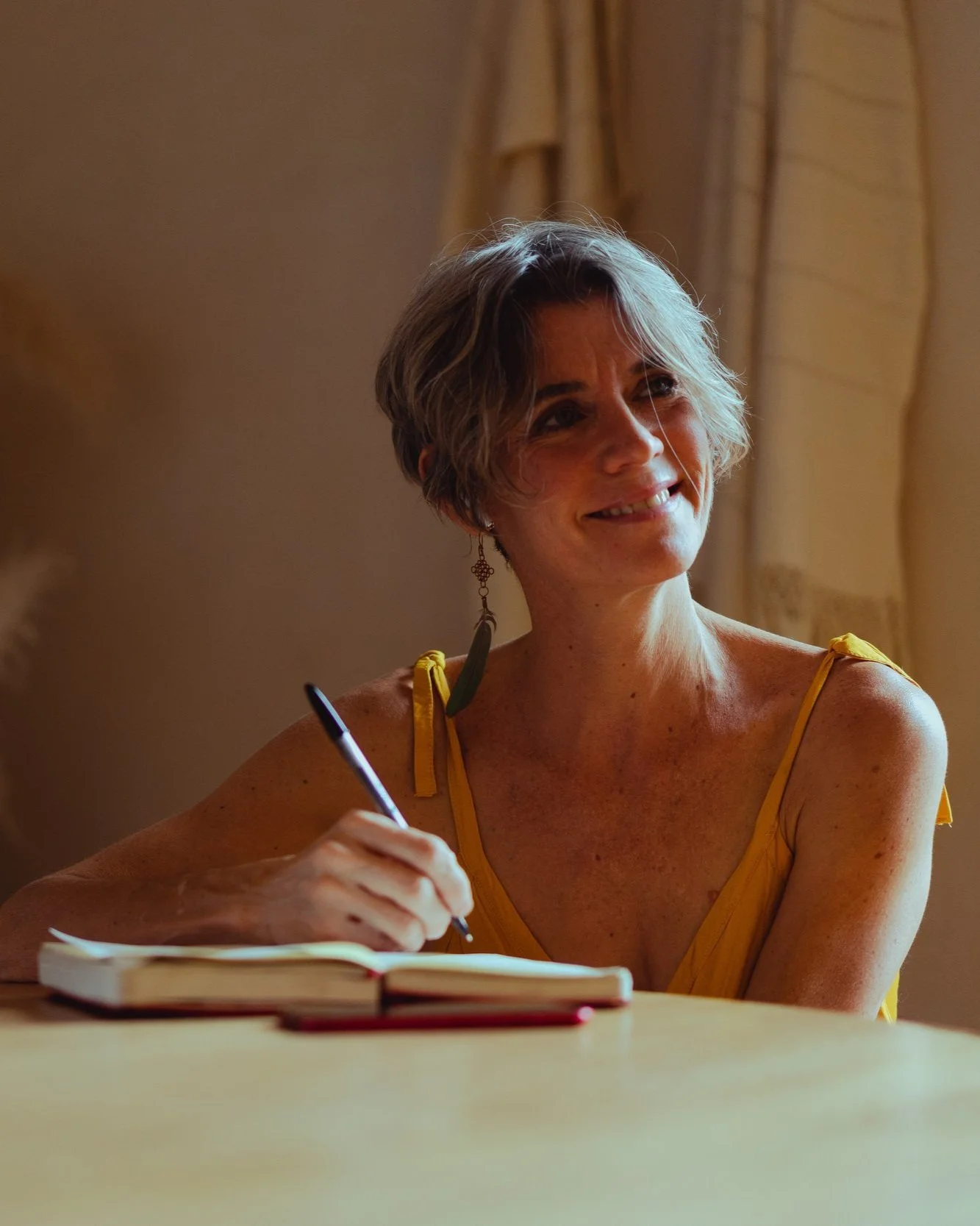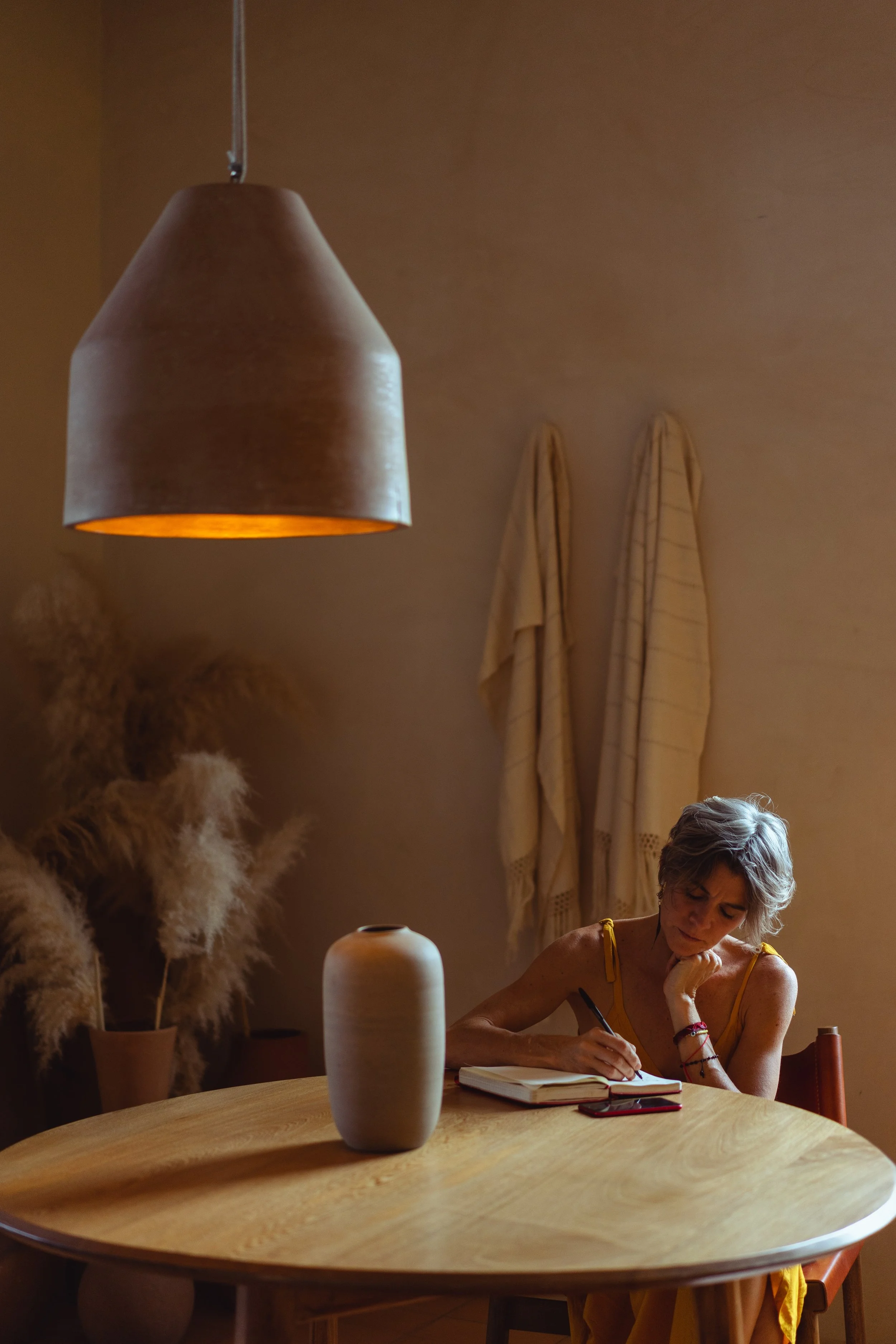An Attitude of Gratitude
6 minute read
I just searched #gratitude on Instagram to find out there are over 32 million posts, almost 49 million if I use #grateful instead. A quick Spotify search gives me a choice of over 100 gratitude podcasts. I can get a regular audio shot of gratitude to help me start my day, fall asleep, raise my children, cope with illness, divorce, a work crisis, get sober or a myriad of other things. And in case I need to start keeping a gratitude list, my local Barnes and Noble has a whole section of gratitude journals that I can choose from.
At this point, I need to let you know that I am a big fan of gratitude, that it has worked for me - and continues to work for me - to make my life better, dare I say it, happier. And at the same time, there’s a part of me that finds myself reacting to the fact that gratitude feels like it has become an industry, a “must have,” like the winter coat I bought on Amazon that went viral so I still can’t walk more than a block from my home without seeing two, three, seven other women wearing it.
My personal introduction to gratitude came at a time in my life when I was going through a rough patch. Like most rough patches, it didn’t behave itself and stay contained in only one area of my life, it spread, like, well...a virus. The nucleus of the rough patch was the ending of a relationship after a decade. Add to that, the therapy that was supposed to be addressing the relationship issue pulling strands from an emotional ball of wool I’d rather have kept tightly wound, and, a seemingly unpublishable first novel, well let’s just say, things look pretty dark, pretty fast.
I’d like to be able to tell you that I sought out gratitude as a way to brighten this darkness, but in truth what wasn’t what I was looking for at all, like so many other good things in my life, gratitude found me. What I was looking for was a way into my second novel, to write authentically about one of my characters who had Alzheimer’s, to understand her better. At the time, there were fewer books on the subject than there are now and I bought almost everything I could find on Amazon. One of the books that arrived in the post was large format with big print and a black and white photo of a man on the front - it looked like a cross between a memoir and a textbook.
The textbook appearance wasn’t surprising once I learned that the author was a college professor - or I should say, former college professor - a man in his 60s who had been diagnosed with early-onset Alzheimer’s who was writing to both help himself and others understand the ravages of this disease. As I started to read about his struggle to accept that he could no longer rely on his intellect - something that had been the bedrock of his career, his life - I wondered how he was able to cope, knowing, as he did, what was to come.
The answer, it turned out - alongside a number of memory and technology aides to keep himself primed to do what he needed for as long as possible - was gratitude. Each night, before he went to bed, his last task of his day was to write down four things that had happened that he was grateful for. I can’t remember why he chose four, but I do remember that they had to be unique things, specific events, particular to that day. The next day, he would read his list from the day before and even as he started more frequently not to be able to recall the events themselves, it would make him feel better, just to know they had happened.
It was at this point that it clicked for me - really clicked - that gratitude was a tool, something I could use to make myself feel better, happier even.
If this man, in his situation, could find daily things to be grateful for, I knew I could too and I started doing exactly as he did, writing four specific events down every night, rereading them the next morning. Thinking back on those early lists, I can still recall an especially creamy mushroom soup, a belly laugh with my office mate, a favourite song of mine coming on the radio in the car that I turned up loud and belted out driving down the N11. Like my teacher, the retired professor, I focused on small specific things that brightened my days, pinpricks of light that shone through the gloom.
At this juncture, I should loop back to something I wrote earlier, about this man’s book being my “introduction” to gratitude. Of course, I’d come across the concept of gratitude before my early 30s, of course, I’d been grateful before. But my brushes with gratitude up to that point were mainly the reinforcing the way I’d learned to use it as a child, where the word “grateful” was so often linked with the word “should.” When I was disappointed not to get the runners I wanted to wear to school, I should be grateful for the Dubarry Shoobops I had instead. If I didn’t like what was on my plate at dinner time, I should be grateful to have food. Comparisons were drawn with children in Africa or 1950s Ireland. These faceless, nameless children would have been grateful for all these things that I had, the things I seemed to take for granted.
Looking back, as a parenting technique it was, I suppose, effective in the sense that it was usually enough to get us all to move beyond whatever arguments might be brewing and I hasten to add that I am not a parent myself. But the feeling that it left behind - the feeling I associated with gratitude - was not one of lightness and joy. The feeling it left - if I had to name it - was a residue of resentment, with a side of shame; not only was I not getting what I wanted, I was being made to feel bad for wanting it in the first place.
By contrast, this new experience of gratitude that I was having felt the polar opposite. As I kept making my lists every night, I noticed a few changes start to happen. For one thing, as I went through my day, I would start to record things for my list that night - to start to feel more gratitude in real-time. Around the same time, it became harder to limit my list to only four - was the robin by my foot in Blackrock Park more “list-worthy” than the parking space that opened up right in front of the bank when I needed to go in? Was the gratitude for a good medical result worthy of bumping tickets for the concert of a band I loved from the list? I can be very literal - some would even say rigid - and it was years before I took the suggestion of a wise friend who gently pointed out that there didn’t need to be a cap on the number of things on my gratitude list. And so, my lists got longer, sometimes into double digits and what surprised me - what continues to surprise me - is that the hard days usually had just as many things to be grateful for as my best days, sometimes even more.
Part of me feels like I should end this piece here, but the truth is that’s not my full truth about gratitude, there is more, I think to be said. There’s that reaction I can find myself having to the podcasts and the hashtags that somehow feels connected to those Dubarry Shoobops all those years ago. And pondering why that might be, I find myself going back once again to my teacher, my professor, trudging towards the inevitable conclusion of his illness. He didn’t make his list every day to deny the fact that he was sick, or to minimize his fear or his anger or confusion about his diagnosis; he used it to balance those things, to bring some light, sure, but not to deny the darkness.
And writing as I am, today, about gratitude, I realise that that’s how it has been for me too - that it’s one thing to focus on the good and be grateful for it, but that it’s quite another to use the good to deny the things that aren’t working in my life, the areas that are hard to look at, the problems I need to address.
Through that lens, I can be grateful that I didn’t end up in hospital with COVID last year and still be angry that my time in the race I will run in Central Park tomorrow will be more than my 2019 race time because of it. I can be grateful that my landlord didn’t increase our rent this year at a time when Manhattan rents are spiralling upwards, while still aspiring to one day not renting anymore, to buying an apartment in Manhattan of our own.
It turns out that the role of gratitude isn’t - as I thought - a way to displace my wants, needs, my feelings, but it is something else, something better; a pocket of space I create for myself, a safe haven, within them. Which means that even if it’s the right thing to choose the Dubarry Shoobops, it’s okay to feel disappointed not to be buying the runners instead. And that sometimes, if I really want to, I get to have both and be grateful for that too.
Yvonne Cassidy, November 2021
what do you think? Tell us in the comments below…
join the conversation
share and comment below, we’d love to hear your thoughts…












